- Home
- Linda Castillo
Gone Missing Page 2
Gone Missing Read online
Page 2
“If I were you,” I say quietly, “I’d think real hard about what you do next.”
I look around, gauging the crowd. They’re still agitated, a little too close for comfort, and restless in a way I don’t like, especially when I’m outnumbered twenty to one. Keeping my hand on the girl’s shoulder, I straighten and make eye contact with a few of them. “You have thirty seconds to clear out, or I’m going to start arresting people and calling parents.”
When they begin to disburse, I glance at the girl. She’s eyeballing her friends, gesturing, sending them nonverbal messages teenager-style, and I realize she’s enjoying her fifteen minutes of fame.
“What’s your name?” I ask.
She gives me an “Eat shit” look. But she’s smart enough to know this is one standoff she’s not going to win. “Angi McClanahan.”
“You got ID on you?”
“No.”
I extend my hand to help her up, but she ignores it and jumps to her feet with the grace of a fallen figure skater going for the gold. She’s a pretty girl of about sixteen, with blond hair and blue eyes, freckles sprinkled over a turned-up nose. Her build is substantial, but she carries it well, the way young women do. The sleeve of her T-shirt hangs off her shoulder. I see scratch marks on her throat, another on the inside of her elbow. There’s blood on her jeans, but I don’t know where it came from.
“Are you injured?” I ask. “Do you need an ambulance?”
She gives me a withering look. “I’m fine.”
“What happened?”
She jabs a finger in the direction of the other girl and her lips peel back. “I was out here hangin’ and that fuckin’ ho jumped me.”
The words dishearten me, but it’s the hatred behind them that chafes my sensibilities. I don’t know when kids started talking this way, but I detest it. Don’t get me wrong; I’m not naïve. I’ve heard worse words in the course of my law-enforcement career, many of which I’ve been the target of. But hearing that kind of rhetoric from such a pretty young woman somehow shocks me.
I reach for the cuffs tucked into a compartment on my belt, yank them out. “Turn around.”
“Dude.” Her gaze slides down to the cuffs and she raises her hands. “I didn’t do anything!”
“Put your hands behind your back.” Grasping her bicep, I spin her around, snap one end of the cuffs onto her right wrist, and draw it behind her. “Give me your other hand. Now.”
“Please don’t . . .” She’s upset now. On the verge of tears. Starting to shake.
I don’t feel much in the way of compassion. Grabbing her free wrist, I snap the cuff into place and crank it down. The too-sweet scent of drugstore perfume mingles with the stink of cigarettes and comes off her in waves. Grasping the chain link between the cuffs, I guide her to the window. There, I turn her around, lean her against it, and put my finger in her face. “Do not move from this place,” I tell her. “Do not speak to anyone. Do you understand?”
Mouth tight, she refuses to answer and looks away.
When I turn my back, she mutters, “Bitch.” I let it go and start toward the crowd. Most of the teens have disbanded, but there are several stragglers, their eyes bouncing from me to Angi, hoping for more fireworks.
The crunch of tires on gravel draws my attention and I see the Painters Mill PD cruiser pull up behind my Explorer. Relief flits through me when Officer Rupert “Glock” Maddox emerges. A former marine with two tours in Afghanistan under his belt, Glock is my best officer, and I’m invariably glad to see him, especially when I’m outnumbered, whether by teenagers or cows.
The remaining teens give him a wide berth as he walks onto the bridge. He has that effect on people, though he doesn’t seem to notice. “Whatcha got, Chief?”
“A couple of Einsteins thought it might be fun to roll around on the ground and beat the shit out of each other.”
He glances past me at the handcuffed girl. “Females?”
“It’s the new thing, I guess.”
“Damn. That’s just wrong.” Shaking his head, he slants a doleful look my way. “Girls didn’t fight when I was a kid.”
“Evidently, stupidity is an equal-opportunity condition.” I motion toward Angi McClanahan and lower my voice. “See what her story is. If she gives you any shit, arrest her.”
He pats the Glock at his hip. “Hey, I’m an equal-opportunity kind of guy.”
I withhold a smile. “I’m going to talk to Muhammad Ali over there.”
I find the second fighter on the opposite side of the bridge, standing next to the girl with the pierced eyebrow. Both girls are facing away from me, staring out the window, elbows on the sill, smoking clove cigarettes.
“Put the smokes out,” I tell them as I approach.
Two heads jerk my way. The girl with the brow hoop turns to me, tamps out her cigarette on the sill, and then drops it to the floor. The one who was fighting flicks hers out the window to the creek below, then faces me. For the first time, I get a good look at her face. Recognition stops me cold. I know her. Or at least I used to, and I’m pretty sure she’s Amish. For an instant, I’m so shocked that I can’t remember her name.
“Hey, Katie,” she says sweetly.
I stare hard at her, racking my memory, unsettled because I’m coming up short. She’s about fifteen, with gangly arms and legs and a skinny butt squeezed into jeans at least two sizes too small. She’s got pretty skin, large hazel eyes, and shoulder-length brown hair streaked blond by the sun. She took at least one punch to the face, because I see a bruise blooming below her left eye.
She smirks, a shifty amusement touching her expression. “You don’t remember me.”
My brain lands on a name, but I’m not certain it’s correct. “Sadie Miller?”
She dazzles me with a smile that’s far too pretty for someone who was on the ground and throwing punches just a few minutes ago. She’s the niece of my sister’s husband, and I almost can’t believe my eyes. The last time I saw Sadie was at my mother’s funeral, just over three years ago. She’d been about twelve years old, a cute little tomboy in a blue dress and white kapp; all skinny legs, scabby knees, and a gap between her front teeth. I remember her so well because she was sweet and social, with a natural curiosity that had appealed to me even through my grief. She was one of the few Amish girls who could hold her own with the boys and had no qualms about speaking her mind to the adults. I ended up spending most of my time with her that day, mainly because most of the other Amish refused to talk to me.
This young woman looks nothing like that cute little Amish girl. She’s tall and beautiful, with a model-thin body. There’s a wildness in her eyes that adds something edgy and audacious to an already-bold appearance—at least in Amish terms anyway—and I know her early defiance of the rules has turned into something a hell of a lot more chronic.
“Do you need an ambulance?” I ask.
She laughs. “I think I’ll live.”
I make a point of looking her up and down. Her nails are painted blue. Her makeup is well done but heavy on the liner. She wears a silky black tank with bold white stitching. The material is so thin, I can see her nipples through the fabric. I hear myself sigh. “Do your parents know you’re here?”
“It’s none of their business.” She flicks her hair off her shoulder. “I’m on rumspringa.”
Rumspringa is the time when young Amish people are allowed to experience life without the constraints of the Ordnung, while the adults look the other way. Most teens partake in some drinking and listening to music—small infractions that are generally harmless. I wonder if this girl will be one of the 80 percent who eventually become baptized.
I stare at her, trying to reconcile the young woman before me with the sweet kid I met three years ago. “You’re kind of young for rumspringa, aren’t you?”
“In case you haven’t noticed, I’m not a kid anymore.”
“You didn’t look very grown-up a few minutes ago when you were fighting.”
&nbs
p; “I’m fifteen.” She looks away. “Old enough to know what I want.”
“Half of the adult population doesn’t know what they want,” I mutter drily.
She laughs outright. “That’s what I like about you, Katie.”
“You don’t know me.”
“I know you break the rules.”
“Yeah, well, all that rule breaking isn’t everything it’s cracked up to be.”
“That must be why you left,” she says, her words saturated with sarcasm.
“Don’t go there,” I warn her.
“I’m thinking about leaving the plain life,” she blurts.
Since I’m the last person who should be having this conversation with a young Amish woman, I take a moment to dig my note pad from my pocket. “How do your parents feel about that?”
“They think the devil has gotten ahold of me.” She throws her head back and laughs. “They could be right.”
Trying not to wince, I turn my attention to her friend, the girl with the gold hoop sticking out of her eyebrow. “What’s your name?”
“Lori Westfall.”
I scribble the name on the pad. “You can go.”
Her eyes slide to Sadie. “But . . . I’m her ride home.”
“Not anymore.” I point to the mouth of the bridge. “Go.”
Huffing a grievous sigh, she turns and walks away.
“I guess all those stories I’ve heard about you are true,” Sadie says.
“I’m not going to respond to that, Sadie, so save your breath.”
She ignores me. “Everyone says you’re a badass.”
“Don’t believe everything you hear.”
“I’m glad you cuffed that bitch.”
“If I were you, I’d start taking this a lot more seriously.”
She sobers, but I still discern the smile in her eyes.
“Who started the fight?” I ask.
Looking far too comfortable with the situation, she shrugs. “I threw the first punch.”
“Why were you fighting?” I ask, hoping none of this is about drugs.
“Her boyfriend likes me more than he likes her, and she’s the jealous type.”
“Who touched whom first?”
“She shoved me.” She glances down, peels at the nail polish on her thumb. “So I slugged her.”
“Did she hit you back?”
She points to her eye. “Hello.”
I frown. “Don’t get smart with me, Sadie. Just because you’re family doesn’t mean I won’t take you to jail. Do you understand?”
“I got it.” But she gives me a sly grin. “Angi McClanahan is a fuckin’ ho.”
The words are so incongruous with the girl standing before me that I’m taken aback. “Give it a rest,” I snap. But I’m acutely aware of the discomfort in my voice. “You’re too pretty to talk like that.”
“Everyone else does.” She looks at me from under long lashes, curious, testing me. “Even you.”
“This isn’t about me.”
“The old women still gossip about you, Katie. They talk about how you used to be Amish but left the plain life for the big, bad city.” She looks at me as if somehow what I did is something to be admired. “Fannie Raber said you told the bishop to go to hell.”
“I don’t see how that’s something to be proud of.”
She shrugs. “I’m tired of all the rules.”
The urge to defend the Amish way rises in my chest with surprising force. But knowing any such defense would be hypocritical coming from me, I hold my silence. “Maybe you should discuss this with your parents.”
“Like they’re going to understand.”
“Then the bishop—”
She barks out a laugh. “Bishop Troyer is so lame!”
“Fighting is lame. Look at you. How could you disrespect yourself like this? You’re going to have a black eye.”
Looking only slightly chagrined, she lowers her voice. “I’m serious about leaving, Katie.”
Suddenly, I feel as if I’m tiptoeing through a minefield without the slightest idea where to step. “I’m not the person you should be discussing this with.”
“Why? Because you left?”
“Because I’m a cop, and I’m not going to discuss it. Do you understand?”
She holds my gaze. “I’ve been thinking about it for a long time.” She lowers her voice. “I don’t fit in. I’m drawn to all the things I shouldn’t be. Music and . . . art. I want to . . . read books and watch movies and see places I’ve never seen. I want to go to college and . . .”
“You can pursue all of those things without fighting and getting into trouble,” I tell her.
“I can’t do those things and remain Amish.”
“You’re too young to be making such an important decision.”
“I hate being Amish.”
“You don’t know what you want.”
“I know exactly what I want!” she retorts. “I’m going to design clothes. English clothes. For women. I know that sounds like some stupid pipe dream. Or according to my datt: devilment.” She does a decent impersonation of her father. “He doesn’t get me, Katie. I’m so good with the needle and thread. Just ask Mamm. She knows I could make a go of it. Only she won’t admit it.”
She motions at the tank she’s wearing. “I made this! Look at it. It’s beautiful, but Mamm won’t let me wear it. She won’t even let me sell it at the Carriage Stop. She says it’s got too much ornamentation and that it’s prideful.”
The words tumble out of her in a rush, too fast and falling over one another, as if she’s been holding them inside and some invisible dam has burst. I recall a vague memory from a couple of months ago: My sister, Sarah, telling me about this girl’s needlework. I hadn’t paid much attention at the time; my sister and I have been dealing with our own issues. But Sarah had gone on about Sadie’s talent. How she’d already sold a dozen quilts at one of the tourist shops in town and customers couldn’t seem to get enough. There’s a part of me that hates the idea of snuffing out that kind of passion. Too many people slog through their lives without it. It is a view, of course, that would not be welcomed by the Amish.
“So are you going to take me to jail?” she asks, looking a little too excited by the prospect.
“I’m going to take you home.”
Sighing as if jail is the better option, Sadie reaches into her pocket, pulls a brown cigarette from a pack, and lights up. I can tell by the way she does it, she’s not a smoker.
“Put that out,” I tell her.
“Why, Katie? You smoke. I saw you. At the graebhoff. Why can’t I?”
“Because you’re fifteen and it’s illegal.” I snatch the cigarette from her and toss it out the window.
She stares at me with clear, watchful eyes that don’t miss a beat. It’s strange, but I find myself feeling self-conscious because, for some crazy reason, this girl looks up to me. She’s learning things she probably shouldn’t, wanting things that, if she remains Amish, she won’t ever possess. It’s a recipe for heartache, and I want no part of it.
“I don’t want to go home,” she tells me.
“Here’s a news flash for you, Sadie. You don’t always get what you want.” I glance over my shoulder. All but two of the kids have left. Glock is speaking with Angi McClanahan. She’s flirting with him, probably trying to get him to remove the cuffs. He jots something in his notebook, steadfastly unaffected.
“Stay put,” I tell Sadie. “I’ll be right back.”
I start toward Glock. He glances up and meets me in the center of the bridge, so that we’re out of earshot of both girls. “What do you think?” I ask him.
Glock shakes his head. “Were we that dumb when we were teenagers?”
“Probably.”
He glances down at his note pad. “Apparently, the two girls were fighting over some guy. McClanahan made contact first. Other girl threw the first punch.”
“I’m so glad I’m not a teenager.”
“I�
��d kinda like to be the guy they were fighting over, though.”
We grin at each other.
“So who’re we taking to jail?” he asks.
“I’m going to let them off with a warning and have a chat with the parents.”
“Good call.” He nods his approval. “Fewer reports to write.”
“Will you drive McClanahan home? Talk with her folks?”
“Sure.”
I glance over at Sadie Miller and sigh. She’s leaning against the windowsill, her foot propped against the wall, smoking a clove cigarette, watching me. “I can’t believe kids still smoke those things,” I mutter.
Glock nods in agreement. “They’ll kill you, that’s for sure.”
As I start toward the girl, I figure we both know there are far more dangerous ills facing our young people and that most of us are at a complete loss as far as how to keep them at bay.
CHAPTER 2
Forty-five minutes later, I’m pulling out of the long gravel lane of the farm where Sadie Miller lives with her parents and four siblings. I’m adept at reading people, regardless of culture, and I’m pretty sure that when Sadie and I initially walked in, they thought I was the one who’d given her the black eye. Deserved or not, I’ve earned a reputation among the Amish.
I did my best to remain objective as I explained what had happened. Esther and Roy Miller listened quietly, but I saw the distrust in their eyes—perhaps even a little suspicion. I heard a lot more silence than questions. By the time I left, I was starting to doubt if they believed any of what I’d told them.
Had this been a non-Amish family, I’d still be in there, listening to the parents defend their child or, perhaps, deflecting cheap shots aimed at me and my department. Not so with the Amish. There was no finger-pointing or laying of blame or absurd rationalizations. Amish parents are generally strict with their children; obedience is ingrained at a young age and enforced with “smackings” when necessary.

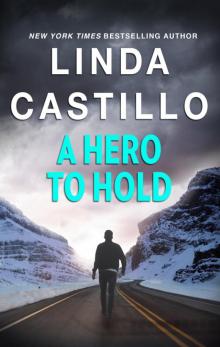 A Hero to Hold
A Hero to Hold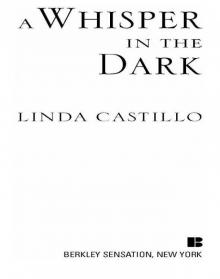 A Whisper in the Dark
A Whisper in the Dark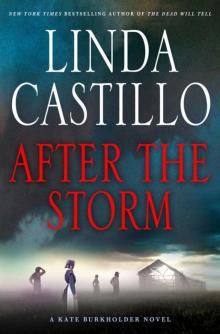 After the Storm
After the Storm A Baby Before Dawn
A Baby Before Dawn Breaking Silence
Breaking Silence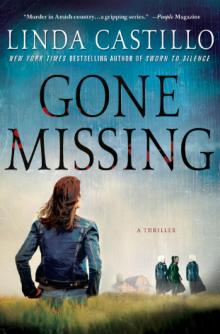 Gone Missing
Gone Missing Long Lost
Long Lost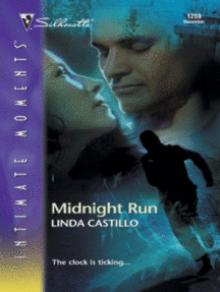 Midnight Run
Midnight Run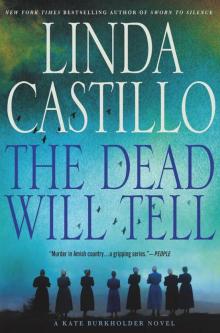 The Dead Will Tell
The Dead Will Tell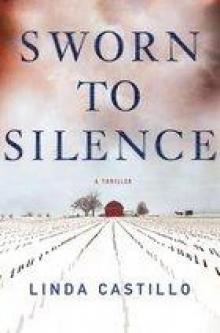 Sworn to Silence
Sworn to Silence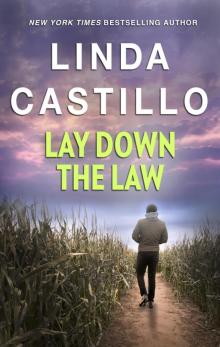 Lay Down the Law
Lay Down the Law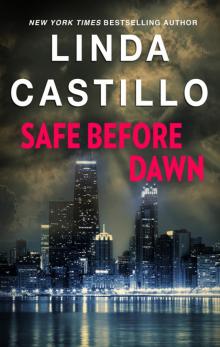 Safe Before Dawn
Safe Before Dawn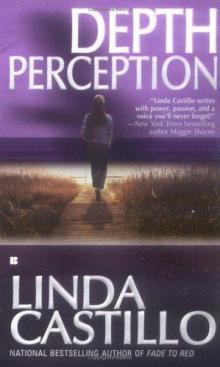 Depth Perception
Depth Perception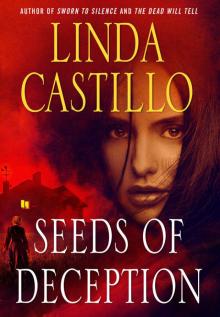 Seeds of Deception
Seeds of Deception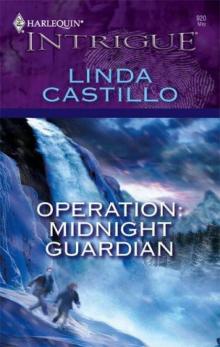 Operation: Midnight Guardian
Operation: Midnight Guardian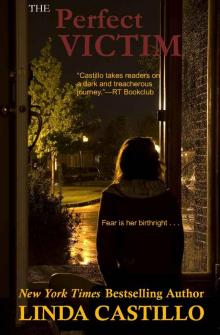 The Perfect Victim
The Perfect Victim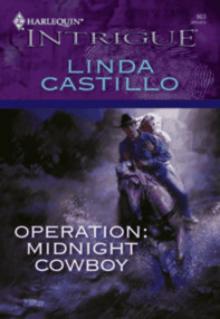 Operation: Midnight Tango
Operation: Midnight Tango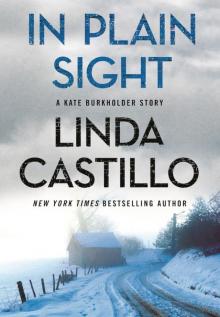 In Plain Sight (Kate Burkholder)
In Plain Sight (Kate Burkholder)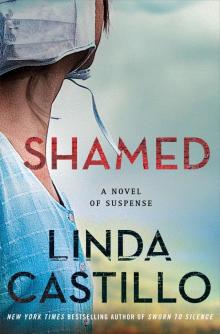 Shamed
Shamed Fallen
Fallen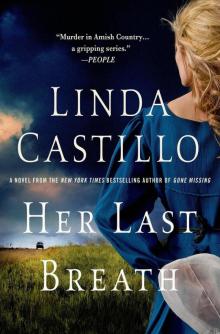 Her Last Breath
Her Last Breath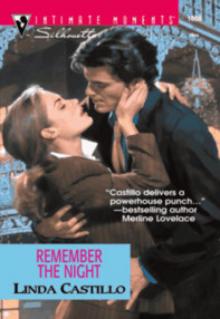 Remember the Night (Men in Blue)
Remember the Night (Men in Blue) Dead Reckoning
Dead Reckoning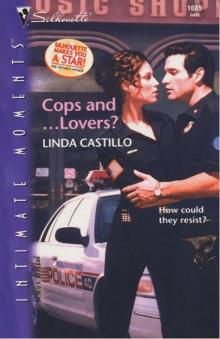 Cops and ... Lovers?
Cops and ... Lovers? The Pact
The Pact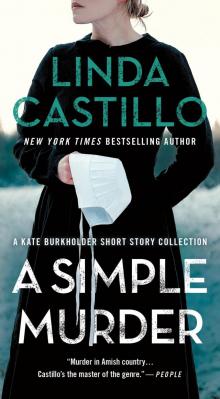 A Simple Murder
A Simple Murder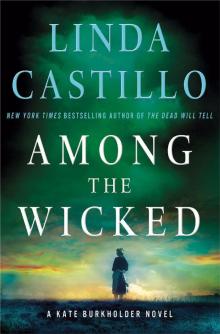 Among the Wicked
Among the Wicked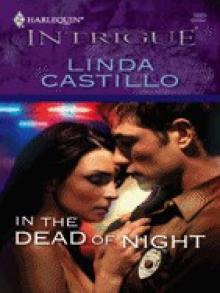 In the Dead of Night
In the Dead of Night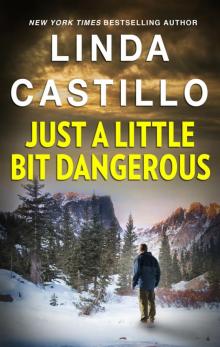 Just a Little Bit Dangerous
Just a Little Bit Dangerous The Phoenix Encounter
The Phoenix Encounter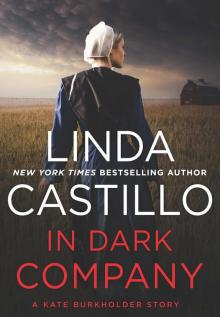 In Dark Company
In Dark Company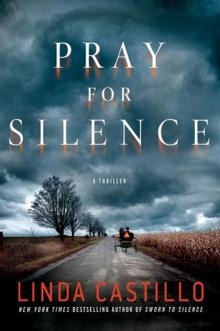 Pray for Silence
Pray for Silence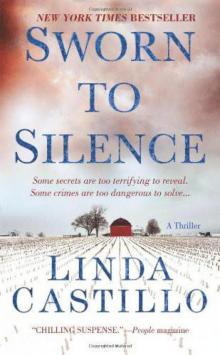 Kate Burkholder 01-Sworn to Silence
Kate Burkholder 01-Sworn to Silence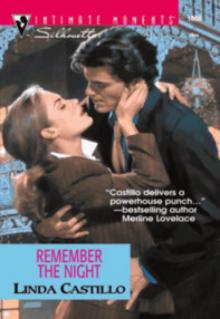 Remember the Night
Remember the Night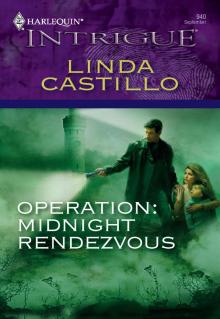 Operation: Midnight Rendezvous
Operation: Midnight Rendezvous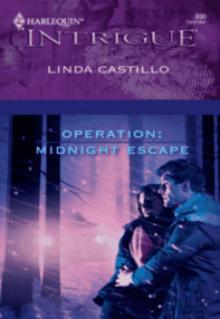 Operation: Midnight Escape
Operation: Midnight Escape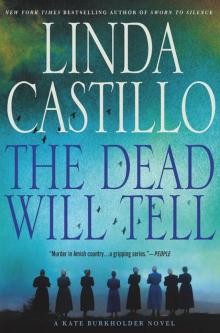 The Dead Will Tell: A Kate Burkholder Novel
The Dead Will Tell: A Kate Burkholder Novel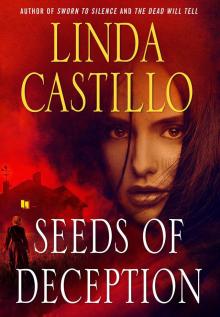 Seeds of Deception: A Kate Burkholder Short Story
Seeds of Deception: A Kate Burkholder Short Story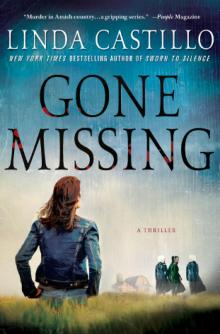 Gone Missing (Kate Burkholder 4) kb-4
Gone Missing (Kate Burkholder 4) kb-4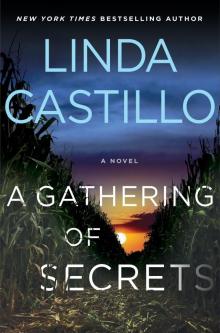 A Gathering of Secrets
A Gathering of Secrets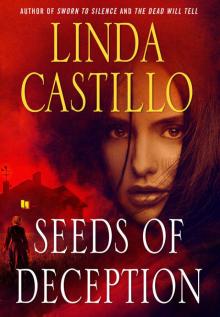 Seeds of Deception: A Kate Burkholder Short Story (Kindle Single)
Seeds of Deception: A Kate Burkholder Short Story (Kindle Single)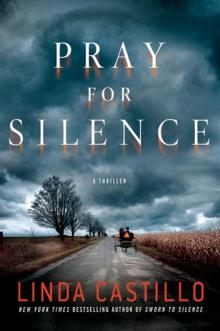 Pray for Silence kb-2
Pray for Silence kb-2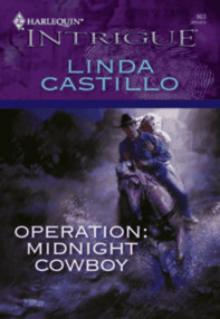 Operation: Midnight Cowboy
Operation: Midnight Cowboy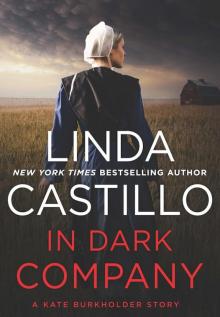 In Dark Company_A Kate Burkholder Short Mystery
In Dark Company_A Kate Burkholder Short Mystery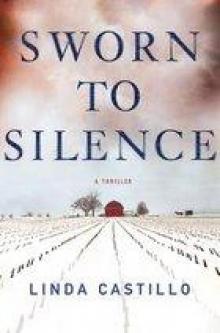 Sworn to Silence kb-1
Sworn to Silence kb-1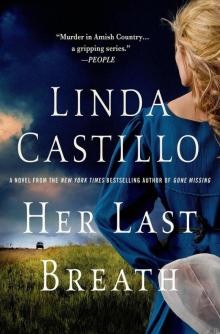 Her Last Breath: A Kate Burkholder Novel
Her Last Breath: A Kate Burkholder Novel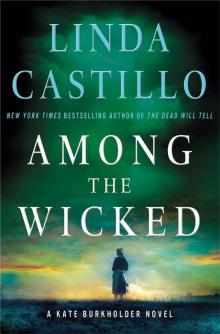 Among the Wicked: A Kate Burkholder Novel
Among the Wicked: A Kate Burkholder Novel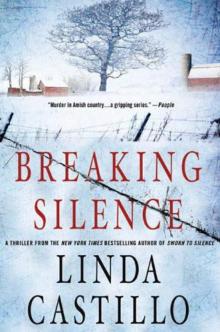 Breaking Silence kb-3
Breaking Silence kb-3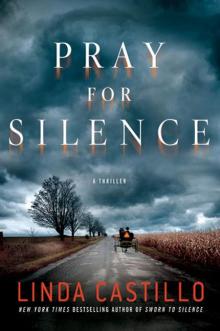 Kate Burkholder 2 - Pray for Silence
Kate Burkholder 2 - Pray for Silence Long Lost: A Kate Burkholder Short Story
Long Lost: A Kate Burkholder Short Story